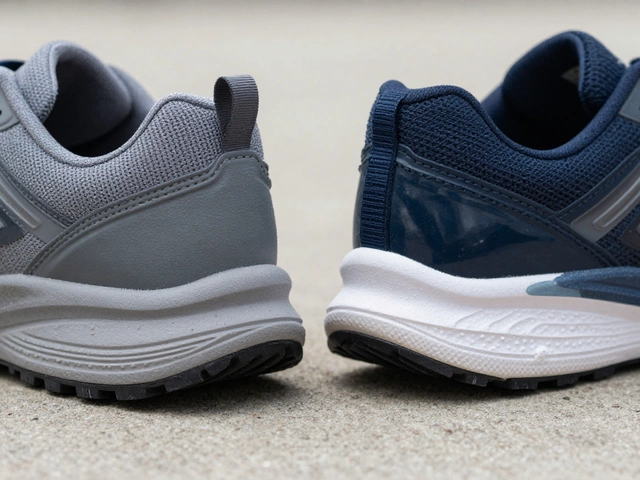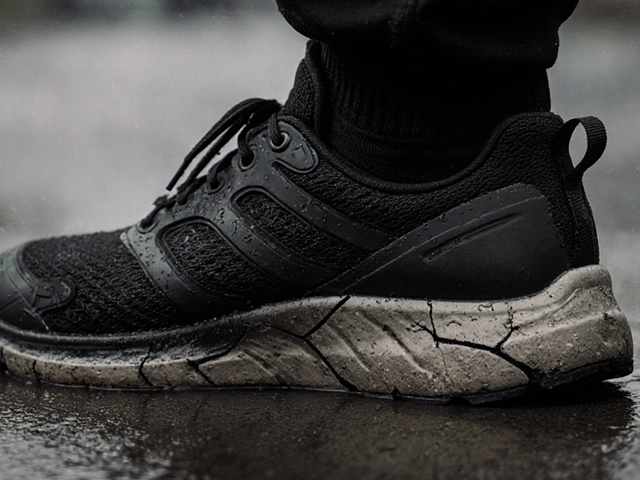Can You Lose 10 Pounds in 3 Days? The Truth About Fast Weight Loss

If you’re hoping to lose 10 pounds in three days, you’re definitely not alone. The internet is packed with wild promises about super-fast weight loss hacks—juice cleanses, crazy sweat sessions, and crash diets that sound almost too good to be true (hint: most of them are). But can your body really burn off that much in such a short window, especially with gym workouts? Here’s the unfiltered truth.
First off, dropping 10 actual pounds of fat in three days isn’t what’s really happening in most stories you hear. When the scale suddenly dips after a hectic diet or extreme workout marathon, what you’re seeing is mainly water weight. Glycogen (your stored carbs) holds water, so losing carbs quickly flushes water out, making the number go down—fast. But it’s temporary. Give your body a regular meal, and most of that weight boomerangs right back.
- Why Everyone Wants Fast Results
- What Really Happens to Your Body in 3 Days
- Gym Workouts That Claim Fast Loss
- Smart Tips for Safe and Healthy Progress
Why Everyone Wants Fast Results
Everybody loves quick fixes, especially when it comes to weight loss. You see ads everywhere—"lose 10 pounds in 3 days" or "shed weight by the weekend." The truth is, even though deep down people know real progress takes time, waiting is hard. Whether it's a wedding, a holiday, or just getting beach-ready fast, we all want to speed up those changes.
It’s not just about vanity, either. Social media makes it worse. Scroll through Instagram or TikTok, and you'll find ripped transformations and "before and after" posts that seem to happen overnight. But here’s a not-so-secret fact: those fast changes are usually about water loss, not real fat burning.
There’s actually research showing how people think. According to the CDC, more than 40% of Americans try to lose weight each year, and most of them look for quick ways rather than slow, steady changes. That’s why crash diets and wild detox teas keep going viral. People want results, and they want them now.
Here’s a quick glance at why fast fixes are so tempting:
- Social pressure from images and stories online
- Waiting feels tough—especially if a big event is coming up
- It feels rewarding to see scale numbers drop quickly, even if it’s temporary
- Some crash diets create the illusion of big success with water loss in the first few days
This table sums up what usually happens with rapid weight loss efforts:
| What Happens | Why It Happens |
|---|---|
| Quick drop on the scale | Mainly water weight loss, not fat |
| Decreased energy | Calorie and carb restrictions |
| Cravings and mood swings | Lack of carbs and nutrients |
| Gains resurface fast | Water weight returns after eating normally |
The bottom line? Everyone wants that big change without the wait. But when it comes to actually lose 10 pounds fast, the body needs more time than three days—unless you’re talking about water, not real fat.
What Really Happens to Your Body in 3 Days
If you try to lose 10 pounds fast in just three days, the number you see drop isn’t coming from fat burning alone. Here’s what’s really happening inside your body when you go through some extreme short-term plan.
Most of the weight you lose this fast is water weight, not actual fat. Your body stores carbs as glycogen, and each gram of glycogen holds about three to four grams of water. When you cut carbs or calories super low, you burn through these stores and your body releases the water along with them.
That means it’s easy to see a quick dip on the scale – but it’s not because you microwaved your fat away. Real fat loss just doesn’t work that fast. To lose just one pound of true body fat, you need to burn around 3,500 calories more than you eat. Even a strict cut and hardcore gym workouts won’t make you torch that much fat in a few days.
Here’s a breakdown of what’s usually going on with your body in those three days:
- Water loss: The majority, especially on day one and two.
- Glycogen depletion: As you use up all the easy energy, the body taps into its backup stores, dropping water along with it.
- Some muscle loss: If you’re not eating enough protein or you’re fasting, your body can break down muscle too.
- Very little fat loss: Fat loss at this speed is tiny compared to the amount of water and even muscle you might lose.
| Component | Estimated % of 10 lbs Lost |
|---|---|
| Water | 60-75% |
| Glycogen | 15-20% |
| Muscle | 5-10% |
| Fat | 5-10% |
The real danger? Going extreme can make you feel dizzy, weak, or even mess with your heart rhythm (especially if you’re dehydrated). Most people will also see the weight jump right back up as soon as they start eating or drinking like normal. So, while your gym grind and sweat sessions might help you see a lower number on the scale, almost all of it is just temporary.

Gym Workouts That Claim Fast Loss
When you search for ways to lose 10 pounds fast, you’ll see a ton of workout plans that promise miracles in just a few days. High-Intensity Interval Training (HIIT) is one of the top ones pushed everywhere. These workouts alternate short bursts of all-out effort with quick breaks, so your heart rate stays up and you burn more calories in less time.
Here’s the deal, though: Even workouts that torch a ton of calories aren’t burning 10 pounds of fat in three days. A hardcore HIIT session might burn 300-400 calories if you push hard for about 30 minutes. That’s less than a single cheeseburger! Let’s break down how that really stacks up:
| Workout Type | Calories Burned (30 min) |
|---|---|
| HIIT | 300-400 |
| Running (8min/mile pace) | 350-500 |
| Spinning | 250-400 |
| Jump Rope | 350-450 |
Now, here’s some real talk. One pound of fat equals about 3,500 calories. To lose 10 pounds of fat just by working out, you’d need a 35,000-calorie deficit. Even with back-to-back workouts and starving yourself, it’s not physically possible to get close in three days. You might weigh less after three days of sweating and barely eating, but it’ll be mostly water, not fat.
Some folks try wild tricks like “sweat suits” or marathon cardio sessions to speed things up. Sure, you’ll sweat buckets, but you’re just losing fluids. Once you drink water again, that weight bounces back. Plus, pushing yourself too hard without rest is a fast-track to feeling awful or getting injured.
If you’re aiming to get leaner, focus on workouts that mix cardio and strength training. Lifting weights speeds up your metabolism, and interval cardio keeps you burning calories even after you stop. Just skip the hype and remember—real progress takes more than a weekend binge at the gym.
Smart Tips for Safe and Healthy Progress
Let’s be real—no matter how tempting it is, skipping meals and sweating for hours isn’t the road you want to take. Losing weight too fast usually means you’re losing mostly water and maybe even some muscle, not fat. The goal should be making changes you can actually stick with and that won’t wreck your health.
If you want your weight loss to last (and actually make you feel better), here are some proven strategies:
- Focus on eating more protein and veggies. People who bump up their protein feel fuller and tend to keep their muscle while dropping pounds.
- Swap out high-calorie drinks with water or black coffee. This simple switch is an easy way to shed extra calories every day.
- Stick with regular workouts—mixing strength training and cardio is key. You’ll burn more calories, and lifting weights can help you hold onto muscle, which matters for your metabolism.
- Set smaller, realistic goals. Instead of chasing “lose 10 pounds fast,” aim for a pound or two a week. Stats show that people who drop weight at this pace are much more likely to keep it off—and they don’t turn into tired zombies.
- Track what you eat and how active you are. That old line “what gets measured gets managed” actually checks out. Most people underestimate their snacks and drinks.
Here’s a quick look at what works best—and what doesn’t—according to recent research:
| Strategy | Effectiveness | Risks |
|---|---|---|
| Extreme Calorie Cutting | Quick results, not lasting | Muscle loss, fatigue, rebound weight |
| Slow, Steady Calorie Reduction | Sustainable, supports fat loss | Requires patience |
| Balanced Diet + Exercise | Best for keeping weight off | Needs planning |
| Fad "Detoxes" or Cleanses | Mainly water loss | Low energy, loss of nutrients |
Real talk—there’s nothing magical about rapid weight loss plans, and they usually backfire. Focusing on good habits gives you a much better shot at results that last, without feeling miserable.




